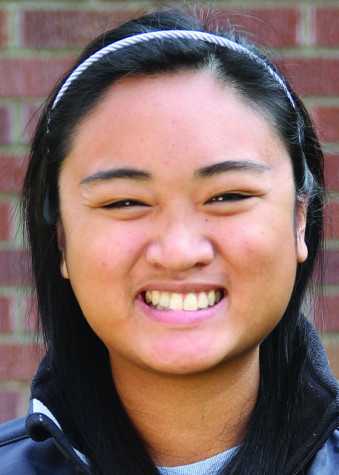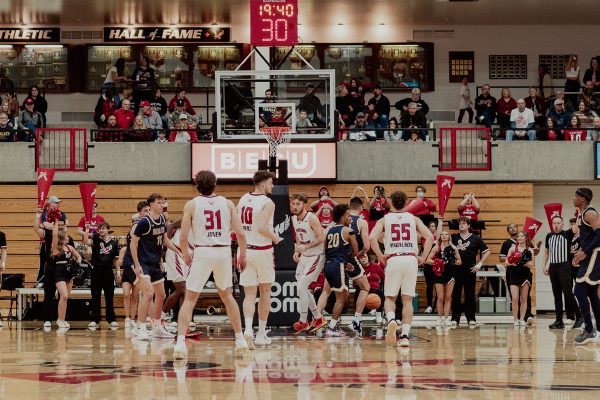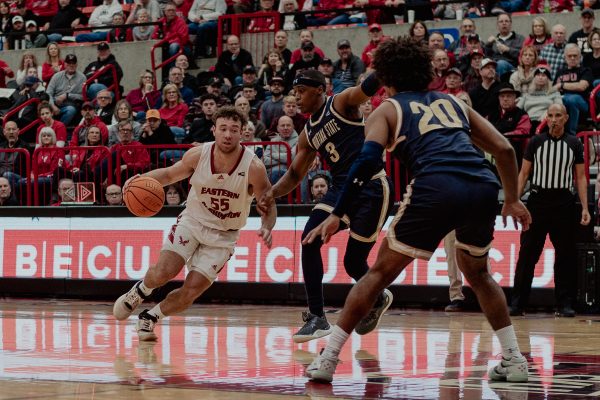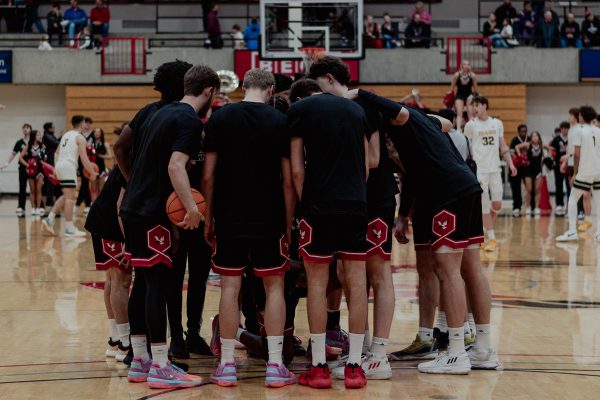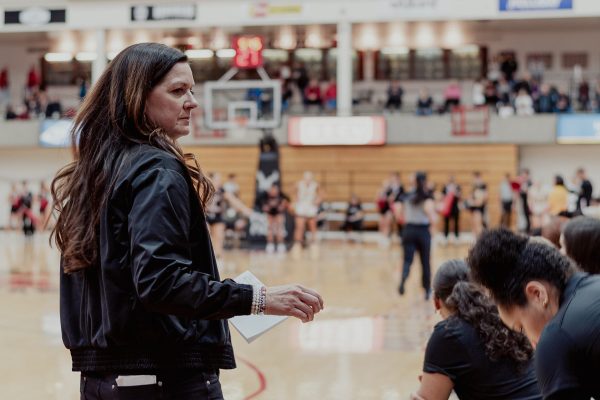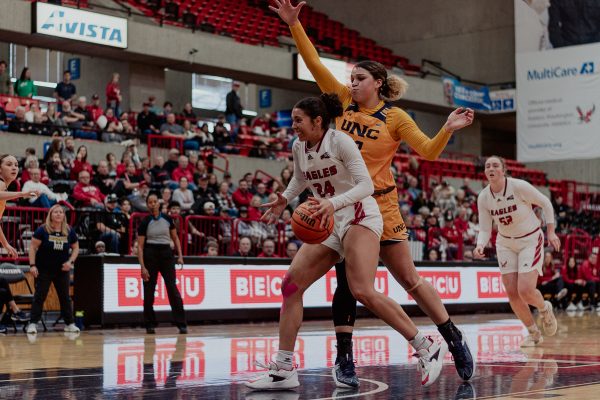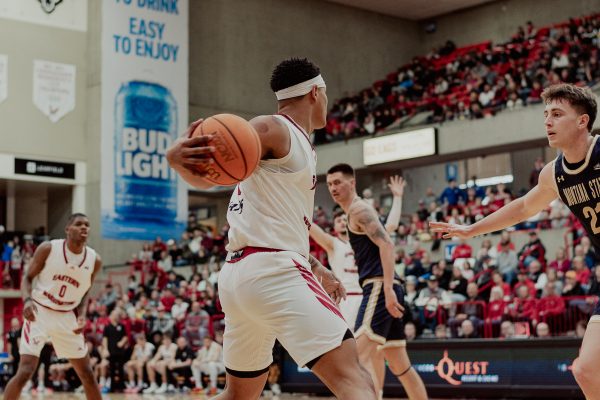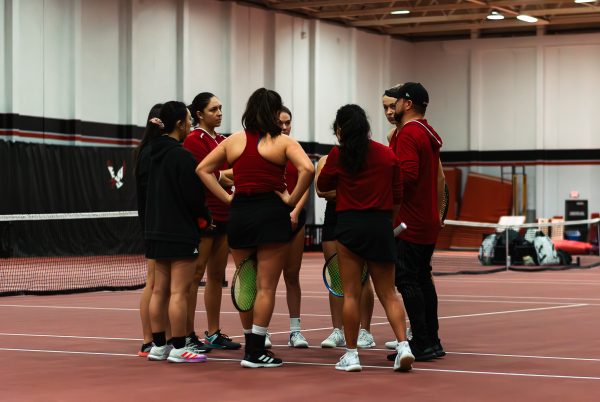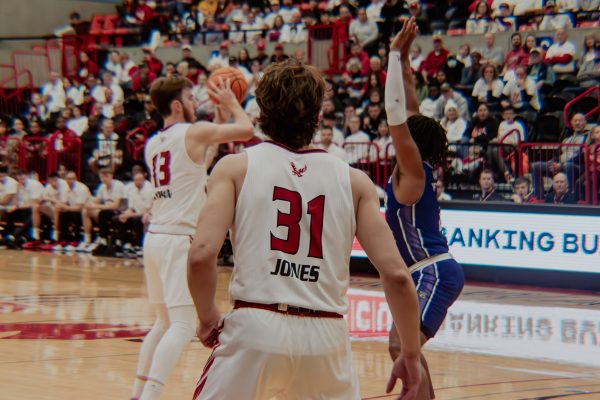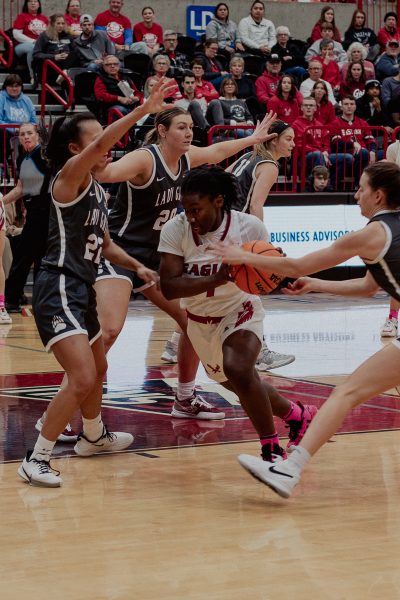Professor roughs it in the wild
May 25, 2013

Physical education, health and recreation professor Dr. Jeni McNeal will mountain bike 60 miles, run 15 miles and kayak 5-10 miles, all solo, on June 8 in The Crux and the Crucible Adventure Race in Athol, Idaho.
The race starts at 9 a.m. and must be finished within 30 hours. The goal of adventure racing is to navigate through the most checkpoints in the least amount of time with only a compass and map to lead the way.
Adventure racing requires stamina, endurance, fearlessness, skills in technical biking, repelling and kayaking, reading a map and good decision-making skills. “If you are missing any of these, you can’t race alone. Jeni [McNeal] has all of these so she is good to go,” said teammate of five years Andy Tucker.
In preparing for the event, McNeal trains for 24 hours starting at 10 p.m. on a Friday until 10 p.m. the following day.
McNeal has been in over 20 adventure races since 2008, and once during a seven-day race, she obtained just 13 hours of sleep. Sleep has never been an issue for her, according to Tucker. “If we keep her fed and warm, she performs like a champ. When you feel like slowing down, you just look at her and it gets you moving,” said Tucker.
McNeal has taken the past year and a half to recuperate from injuries in her back and multiple knee surgeries. As an exercise and sport scientist, McNeal is good at debunking myths about training and knows how to recoup from injuries, according to Tucker.
McNeal is training in distance running, hiking, biking and kayaking with a 35-pound backpack because she will have to carry a pack that weight that holds all the supplies she needs throughout the race. At times, she will do pullups and pushups with a lighter pack of 12 to 15 pounds.
Adventure racing is an exclusive sport. Professional athletes participate and the winners tend to be sponsored, according to McNeal.
“Nobody has ever done this at Eastern. It’s really kind of an unknown weird [sport] that [has] students [asking], ‘You do what?’” said McNeal.
Racing solo is not as common because of safety precautions. McNeal has raced solo before in shorter races that were four to five hours but never one of this length.
As a team member, McNeal is supportive in training and racing. She comes prepared, mentally and physically, by training and doing research on the race, the course options and the climate, according to Tucker. “Jeni [McNeal] is often the voice of reason. She’s methodical and rational and thinks through challenges well,” said Adventure Sports Week Idaho Race Director David Adlard.
Adlard knows McNeal as being self-motivated and “bloody-minded stubborn,” and Tucker knows her for her fearlessness. Both agree that she is a great teammate who motivates others through adversity.
Getting lost, hauling kayaks, hiking and biking up huge hills, racing through the Mojave Desert, having “epic” trainings and racing together are amongst some memorable moments for Adlard of being a teammate with McNeal.
“You don’t know what you can do until you’re out there. And that’s probably one of my biggest attractions is that it pushes me to places I didn’t think that I could ever go. You’re literally trying to survive and race at the same time,” said McNeal.
McNeal’s closest encounter with death was in the Mojave Desert. Her team of four was rappelling down a canyon to the Colorado River and it was 105 degrees, but with the heat off the rocks, she thinks it must have been much hotter.
After two hours of no water and not yet to the river, McNeal began to panic and became so dehydrated she was incoherent and shaking. Her teammate had to rappel down and come back up to get her water. It was such a survival moment that there was no time to wait for the water to be purified, according to McNeal.
McNeal has ran through races with screws coming loose in her knee. Her teammate Tucker describes her as “tough as nails.” In a race where they both were hurting, Tucker with half-dollar sized blisters on his feet and McNeal with pain in her knees, they ran three miles while ascending 2,600 feet. “We agonized together and finished with smiles and a great sense of accomplishment,” said Tucker.
There’s no other feeling comparable to finishing an adventure race, according to McNeal. “There are so many survival moments where you could have died or been majorly injured, and you were able to push through it. When you finish that, it’s amazing.”



